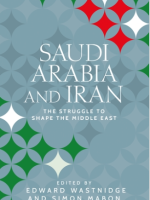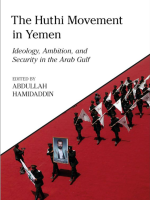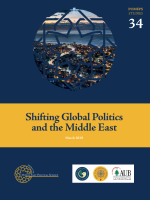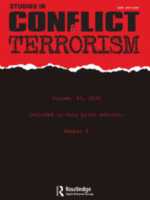Delegation or Intervention
The sunk cost effect refers to a tendency to continue an endeavour once an initial investment in money, effort or time has been made. In other words, the barrier to withdrawal or compromise increases with the resources allocated to the intervention in the first place.
This book chapter uses the notion of sunk cost to explore why Saudi Arabia has struggled to extricate itself from the military intervention in Yemen. It argues that the linkage of the Houthis to Iran framed the conflict as part of the rivalry between Iran and Saudi Arabia which increased the Saudi reputational and material cost related to withdrawal.
The Saudi effort to identify the Houthis as Shia, and as a threat to not only Yemen, but the entire region was part of the broader trend in the aftermath of the 2011 uprisings to use sectarian narratives couched in anti-Iranian terms.
However, the regionalization of the conflict has exacerbated internal cleavages in Yemen and provided incentives for parties to the conflict to escalate fighting rather than seek domestically anchored settlements. In this process, the Houthis has emerged as the more coherent military force on the ground with stronger ties to Iran than ever before.
The chapter thus speaks to general debates on how the involvement of external actors in general, and the regionalisation of conflict in the Middle East in particular, can prolong the duration and severity of violent conflict.
DIIS Experts








